Speak Out! Doctors Without Borders' Fight for Aid
Doctors Without Borders was among the first to rush to Ukraine's aid after Russia's invasion. Half a century ago, the group was established by 13 members with the goal of providing free medical care and speaking out. Their activities have opened the global community's eyes to refugee conditions and the persecution of ethnic groups, and they even helped end the Rwandan genocide. Learn how the Nobel Peace Prize-winning NGO has continued to balance ideals with reality across the globe.
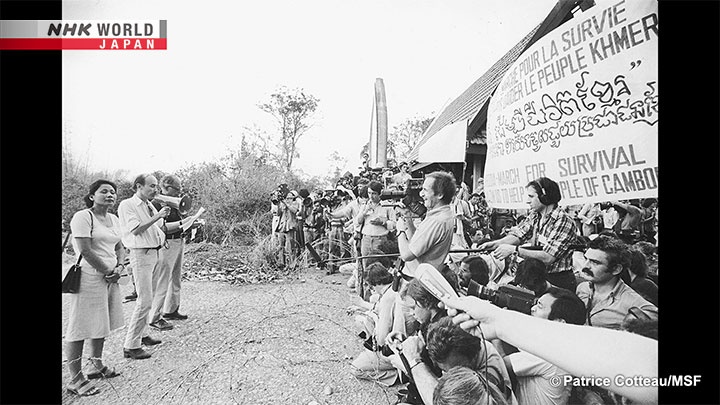
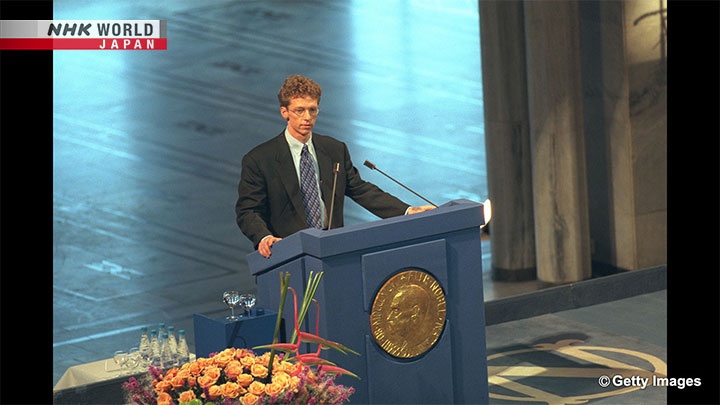
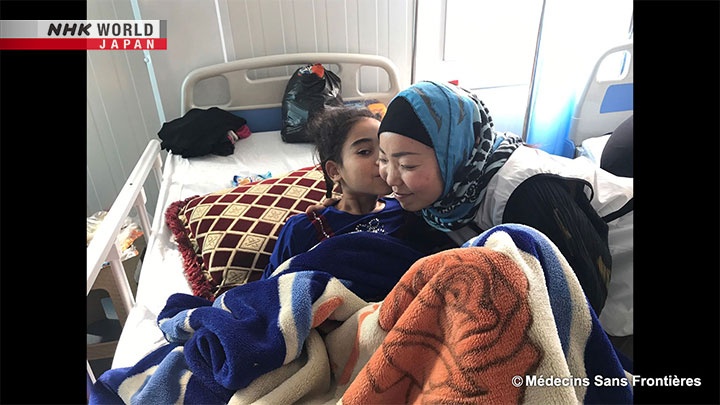
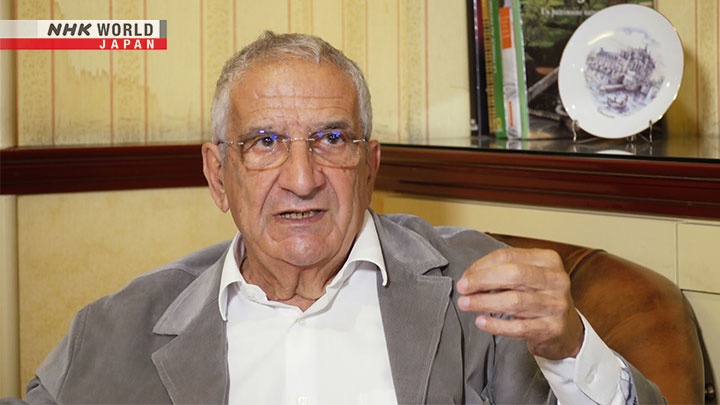
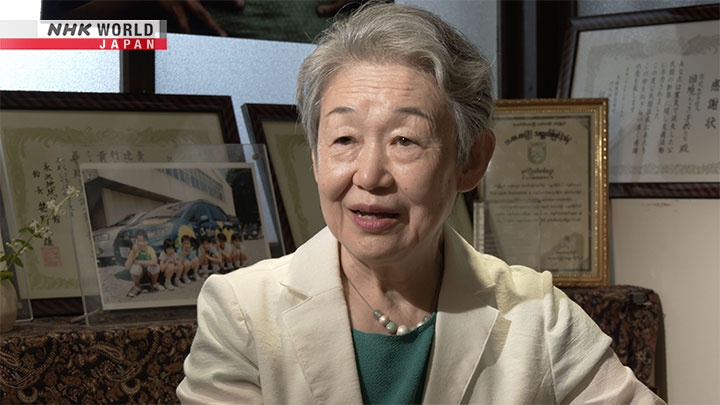
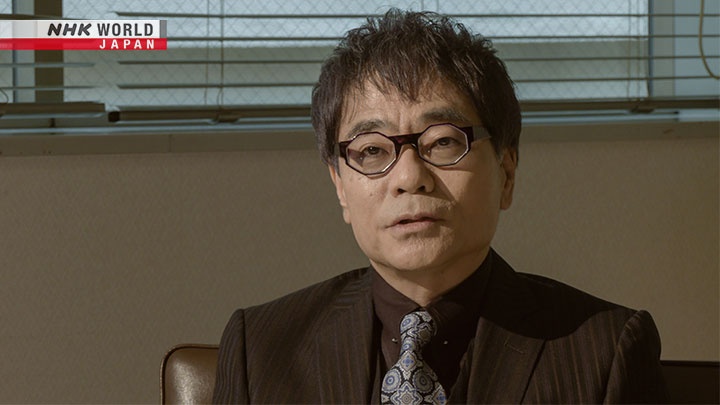
Transcript
Russia's invasion of Ukraine has led to countless deaths and forced an alarming number of people to relocate.
A certain group of people have been in Ukraine providing constant medical support.
Médecins Sans Frontières, or Doctors Without Borders,
is an NGO that provides free medical care in conflict zones and disaster areas.
As the name suggests, no border will stop the group from providing care,
even in remote locations that lack any medical facilities.
It took a lot of hard work to get to where they are today.
Doctors Without Borders began as a group that consisted of 13 hot-blooded young individuals.
When we had disagreements, we tended to settle things through fistfights, not words.
No matter how enthusiastic, members were quickly met with a harsh reality.
There were limits to
medical care in conflict zones.
It felt like what we were doing
wasn't dealing with the real issues.
Balancing their ideals with reality,
Doctors Without Borders continues to push forward, regardless of the hurdles in their way.
Wars and conflicts continue unabated across the world.
Over 40,000 members of Doctors Without Borders provide free medical care in about 90 countries and regions.
History reached a turning point on October 15th, 1999, when the group was awarded the Nobel Peace Prize.
Beyond medical care, they raised another important issue—
—To speak out.
During his speech, the NGO's leader said this:
"We are not sure that words can always save lives, but we know that silence can certainly kill."
They were determined to show the world the reality of war and disaster.
Vantage point one.
The young French doctors who were there from the beginning.
Their undeniable passion gave way to Doctors Without Borders.
This is their story.
Paris, France.
Doctors Without Borders began here in 1971.
We talked with one of the central figures who helped found the group, Doctor Bernard Kouchner.
At the time, there were many obstacles that kept doctors from working overseas.
We were aware of the difficulties, but our ambition wouldn't let us back down.
The young doctors had a clear focus.
May 1968.
Paris was in turmoil.
Students calling for educational reform took to the streets.
That soon became a massive protest against the capitalist system itself.
Among the protesters was 29-year-old Bernard Kouchner.
People like us who are born in developed countries live better than most of humanity.
It wasn't fair.
We needed to rectify things.
I wanted to create global equality.
In 1970, the idealistic Kouchner joined the International Red Cross, eager to begin humanitarian aid.
However, a harsh reality tested those ideals when he was dispatched to Africa.
In Nigeria, the government was in the middle of a conflict with Biafra,
a territory to the east that wanted to secede.
The government had cut off food supplies to Biafra.
The people were struck by unimaginable famine.
Every child was suffering from starvation.
And all we could do was watch as they died one by one.
Kouchner was determined to let the world know what was going on.
However—
—The International Red Cross, which needed to stay neutral,
told the doctors not to interfere with local politics
and had them sign a pledge not to talk about what they saw.
Kouchner would not go so quietly.
I disobeyed my pledge and condemned the devastation in Biafra.
I could not stand idly as children died.
I knew one way to break the blockade and get food in was to make an appeal to the international community.
Kouchner eventually left the Red Cross.
He thought he had no choice but to give up his dream to be a global medicine worker.
But that all changed when he reconnected with a university friend in Paris.
Xavier Emmanuelli.
With no desire for status or fame,
Emmanuelli focused his attention on providing care to workers in harsh conditions.
We recognized each other as outsiders and often discussed politics.
But, we were young.
When we had disagreements, we tended to settle things through fistfights, not words.
The two contacted friends in medicine and journalism,
eventually assembling a team of 13 to form Doctors Without Borders.
The group had one non-negotiable rule.
If we do not expose the atrocities on the ground, nothing will change.
We pledged not only to provide medical care, but also to "speak out."
Although the group was highly motivated, they had nothing to start with.
At the time, several humanitarian aid groups were already active globally,
including the International Red Cross.
However, most funds were provided by governments and the United Nations.
If Doctors Without Borders wanted to keep speaking out, they needed a different source of funding.
Emmanuelli and his colleagues decided to collect donations from the public,
but they didn't know where to start.
We were like beggars.
We went around France giving speeches for 100 francs.
Of course, we tried to do whatever else we could to raise money, like writing books and placing advertisements. We tried.
Although it wasn't much, the group raised enough to get up and running.
At the time, their biggest focus was providing aid to Cambodia.
This was during the Pol Pot regime when political fearmongering ruled the country.
It is said over a million lives were lost in massacres and forced displacement.
Refugees fled to Thailand, a country next to Cambodia, where Emmanuelli and his team provided aid.
Rony Brauman was a new recruit in Doctors Without Borders.
Brauman was 27 at the time and motivated when he arrived at the refugee camp,
but he did not expect what came next.
Due to the group's lack of preparation, we quickly ran out of funds.
Soon enough, we didn't have any food to eat.
Luckily, the refugees shared theirs with us.
We ended up needing help from the very people we were supposed to be helping.
One writer described the NGO as a group of "amateur romantics."
We were young and thought we were capable of doing anything.
But in reality, it turned out we couldn't get done any of the things that needed to get done.
A turning point soon came for Emmanuelli's team.
In 1979, Vietnam invaded Cambodia and overthrew the Cambodian government.
The new regime sealed the border with Thailand.
Without access into Cambodia, there was no way to monitor for human rights violations.
In Thailand, Emmanuelli and his team decided to take action.
We will march to the border.
I will say Doctors Without Borders
wants to provide aid inside Cambodia.
On February 6th, 1980, a protest was organized near the Cambodian border.
It was called the "March for Survival."
Participants included Joan Baez, a well-known anti-war singer-songwriter, and journalists from around the world.
Cambodia's government must acknowledge
that humanitarian aid is being obstructed.
International press outlets began to take notice.
Major newspapers in the United States and France reported on the protest.
The news also reached Japan.
The March for Survival gained a lot of media attention, just like we planned.
After that, donations started rolling in.
That demonstration helped Doctors Without Borders become known worldwide.
Finally, with enough funding, Doctors Without Borders could reach out to more doctors and specialized staff
to help transport supplies and set up clinics.
They also hired public relations experts and staff to negotiate with local governments and ruling powers.
Everything seemed to be going smoothly.
However, their stance about speaking out caused friction with local groups.
In 1984, a severe famine ravaged Ethiopia.
Doctors Without Borders accused the military regime of diverting aid and supplies.
Soon after, the NGO was expelled from the country, while other aid groups were allowed to stay.
Members even began to fear for their lives.
In Afghanistan in the 1980s, hospitals were bombed in part to stop us from providing aid.
There were also bombings in Syria, Yemen, and South Sudan aimed at our doctors.
Doctors Without Borders has been a target since its foundation.
Ninety-seven members of Doctors Without Borders have lost their lives providing aid.
But the group's unwavering strength to speak out was finally beginning to make an impact.
In the early 1990s, a civil war broke out in Rwanda, Africa.
The Hutu militias massacred the Tutsi minority ethnic group, killing over 800,000 people.
Doctors Without Borders witnessed countless atrocities while providing aid in the region.
Troops sent in by the United Nations requested assistance, claiming there was a large-scale massacre.
Their request wasn't answered.
The violence we saw in Rwanda was so massive and horrific.
From our perspective, it was absolutely clear that this was genocide.
We needed to expose and put an end to the massacre at all costs.
In May, Brauman and his colleagues placed an ad in France's prestigious newspaper, Le Monde.
"This is not an ethnic war, but systematic and programmed extermination."
"Mr. President, the international community, and France,
must assume its responsibilities and force an end to the massacres, protect the civilians and prosecute the war criminals."
The purpose of the newspaper ad was to make people aware of the atrocities that were occurring.
We hoped it could lead to some kind of movement that would end the genocide,
because doctors in Rwanda can only do so much.
News outlets worldwide began to call for the end of the Rwandan genocide.
One month after Brauman and his team made their accusations,
the UN finally answered the call and sent more troops.
The French government also sent in their military.
Support from a variety of sources came together to end the genocide.
Five years later, on October 15th, 1999.
Doctors Without Borders received some unexpected news.
The Nobel Peace Prize for 1999 to Doctors Without Borders/Médecins Sans Frontières.
The reasoning for the reward included this passage:
"By intervening so rapidly, Médecins Sans Frontières calls public attention to humanitarian catastrophes,
and by pointing to the causes of such catastrophes, the organization helps to form bodies
of public opinion opposed to violations and abuses of power."
The group's consistent dedication to speaking out had earned the highest praise.
I was very happy.
I would much rather win a Nobel Prize than get punched in the face for speaking out.
The reason we speak out is to sound alarms to the global community and expose unseen truths.
Such activities are what make up the essence of Doctors Without Borders.
All it took was 13 dedicated people to create a group that continues to change the world.
French doctors formed Doctors Without Borders.
It took 21 years for the group to establish a Japanese bureau.
However, few doctors joined, and donations were small.
But then, a 7.3 magnitude earthquake shook Japan.
The Great Hanshin-Awaji Earthquake.
Doctors Without Borders rushed to provide aid to the affected area.
Vantage point two.
Terada Saeko.
The Japanese woman who supported the group through activities like arranging for supplies to reach disaster areas.
The woman who helped form the Japanese bureau — this is her story.
Terada Saeko is now the head of an organization that provides aid for children in developing countries.
She was 46 and a full-time housewife when she joined Doctors Without Borders.
I didn't know anything at all.
I tried to be helpful
without slowing them down.
For me, it was just
a chance to help out.
In fact, Terada had dedicated 30 years - over half of her life - to volunteering for humanitarian aid efforts.
After her children had grown up and Terada had more time to herself,
she received a call from a university friend.
The friend asked Terada to meet with someone from France since she had studied abroad in the country.
My French wasn't very good,
and I didn't like meeting strangers.
But he said to go anyway.
That man was Dominique Léguillier, a member of Doctors Without Borders.
"Bonjour!"
Léguillier wanted to establish a bureau in Japan and help send Japanese doctors across the globe.
In my mind, nothing was impossible.
I was optimistic.
I thought the Japanese approach to humanitarian aid would be the same as Europe, Africa, America.
Léguillier asked Terada to be his interpreter.
Although she had no knowledge of medical aid, Terada accepted, knowing it would help people.
The Japan Bureau was founded in 1992 with four members, including Terada.
Here is some rare footage of Léguillier and Terada at that time.
Terada would often join Léguillier as he visited companies to ask for donations.
If we got a kind of a green light from Keidanren, everything will be okay.
But they were often met with a cold shoulder.
Most large companies have
a general affairs department.
They deal with suspicious people.
I got lots of "Who are you?" looks.
People younger than my son told me off,
saying the company wasn't interested.
I went home disappointed often.
At the same time, the recruitment of Japanese doctors had come to a halt.
This was when Doctors Without Borders had a rule that participants would spend six months overseas.
A monthly payment of 100,000 yen was all the NGO could afford.
Tokyo medical associations were hesitant to help.
Perhaps we lack
a willingness to volunteer.
But going overseas for six months
to a year while supporting a family,
would be difficult for most Japanese.
We were not welcomed at all.
The importance of global humanitarian aid was not yet understood in Japan.
After spending an entire year recruiting, a total of three doctors and nurses joined.
Terada began to believe it would not be possible to get Doctors Without Borders up and running in Japan.
But then—
Fire and black smoke covers the area.
The Great Hanshin-Awaji Earthquake.
The 7.3 magnitude earthquake ravaged cities across the Kansai region.
I was watching the morning news.
I couldn't believe it.
The sheer magnitude of the damage caused a chaos of information.
Both national and local governments were in disarray.
The Japan Bureau of Doctors Without Borders immediately tried to send relief supplies to Kobe.
But roads were cut off, creating logistic problems across the region.
They needed a cargo truck.
So, I nervously called
large cargo companies.
I didn't know where else to start.
They refused due to low resources.
The entire staff spent the whole day filling up a 10-ton truck with water, food, blankets,
and other supplies, and sent it off to Kobe.
Ozawa Masaki was at a Kobe evacuation center and remembers the lack of aid after the earthquake.
The first supplies that arrived were from Doctors Without Borders.
I still remember how happy I was.
Right when hope was fading,
the supplies began to arrive.
It showed me that
people were supporting us.
It felt like a ray of light shining in,
cutting through the anxiety,
isolation, and despair.
The Tokyo Bureau searched for doctors who could travel to the affected areas
by contacting medical institutions they had worked with before.
One doctor called back — Atake Shigeru.
Atake, who was working at a university hospital, offered to help in any way possible.
They asked if I could
make it to Nishinomiya
by the following Saturday.
I couldn't say no.
Atake was able to gain permission from his professor and left immediately.
He was 33 at the time.
Atake arrived at a Kobe evacuation center.
The building housed 2,000 people without a single doctor available.
- When did you start feeling bad?
- I don't have an appetite.
Countless disaster victims were seeking medical attention.
Atake was providing care 24 hours a day.
News outlets began to report on his work.
More and more people joined
and began providing medical support.
In that way, I feel I was
able to leave a positive mark.
Once people heard about Doctors Without Borders, more and more doctors and nurses offered support.
Other humanitarian aid groups established clinics across Kobe.
Medical care finally began to reach the region.
We were so happy.
Some traveled over 1,000 km to help.
I remember several nurses
coming from Hokkaido in shifts.
Even Japanese people are capable
of giving unconditionally.
It made me proud of my country.
Three years after the Great Hanshin-Awaji Earthquake, Léguillier returned to France.
Before he left, he nominated a successor to take his place:
Terada Saeko.
During the seven years Terada was president,
Doctors Without Borders raised over one billion yen in donations and expanded its activities globally.
Terada joined the NGO without thinking too much about it.
But Léguillier's words have continued to push her forward:
"Indifference is murder."
"Everyone's indifference
will lead to more suffering."
His words completely changed
the way I lived my life.
It was like I suddenly found
a profound, rich reason to live.
My life was never the same after that.
Doctors Without Borders has continued to grow in Japan.
Currently, nearly 100 staff members are dispatched across the globe.
At the same time, most Japanese have never experienced war at home.
Why leave a peaceful life to work in such dangerous conditions?
Vantage point three.
A woman who admired, and then joined, Doctors Without Borders.
Shirakawa Yuko.
A nurse in pursuit of the meaning of "speaking out" — this is her story.
Hello! I'm Shirakawa.
Some days, we treated over
800 emergency patients across 24 hours.
It's an unbelievable number.
They also needed food,
clean water, and more.
Medical support was just
one of many things in need.
Shirakawa heard about Doctors Without Borders winning a Nobel Peace Prize while working as a nurse.
After spending ten years gaining experience, including seven years abroad, she joined the NGO.
Shirakawa's third overseas assignment led to a harsh realization.
Yemen was in the middle of a civil war.
People caught in an airstrike were being brought to a local hospital.
Some came in with limbs torn off.
Others didn't even look human.
Bones would be sticking out.
Being unable to save a life
filled me with anger and regret.
I felt so powerless.
But I was no longer going to stand around
as the world's problems continued.
Her next destination, Syria, was also in a civil war, but the conditions were even harsher.
A violent conflict between the Syrian government and rebel forces had led to many civilian casualties.
A female Japanese journalist was one of those who perished.
Soon after, the Islamic State militant group joined the civil war.
Foreigners began to fear for their lives just because they were born overseas.
Shirakawa was providing nursing care in a rebel-controlled area when suddenly—
An airstrike targeted the hospital she was stationed at.
When I first experienced an airstrike,
I truly feared I was going to die.
I still remember it to this day.
Patients continued to come in one after another.
The experience slowly evoked a specific emotion inside Shirakawa.
There were limits to
medical care in conflict zones.
It was out of my control.
Conflicts would never end.
It felt like what we were doing
wasn't dealing with the real issues.
Overwhelmed, Shirakawa considered quitting the group she had admired for so long.
Many people who join Doctors Without Borders face dilemmas similar to Shirakawa's.
Writer Ito Seiko had watched the NGO and its members struggle firsthand.
Doctors Without Borders had caught his interest.
Ito followed the NGO and reported their activities.
As humans, we can't save everyone.
Humanitarian aid is often contradicting.
Saving a life can mean
sacrificing another.
There is no way
for all of it to be good.
The extreme gap between their ideals and the harsh reality pushes many to leave.
But Ito has also seen many make their way back.
Many look away from unpleasantries.
But many others can't.
Despite the difficulties, Shirakawa continued to provide care in Syria.
One day, she met a young 17-year-old girl who had been injured in an airstrike.
Her legs were shattered.
Unable to walk, the teenager was devastated.
Shirakawa spent every day with her.
I tried to talk to her,
but her heart was shut off.
I visited every day, talking to her
and holding her hand.
I did my best to keep a connection.
One month later, Shirakawa had finished her assignment and was heading back to Japan.
Before she left, Shirakawa asked the 17-year-old to take a picture together.
She agreed, and this is that photo.
When she finally opened up to me,
we took a photo.
She was smiling.
That made me so happy.
I was able to talk to her every day
because I was a nurse.
I held her hand
and our hearts grew close.
My hesitation was gone.
As a nurse, I would be their witness
and speak out for them.
I can make a difference
by sharing their stories.
I finally realized what I could do.
After returning to Japan, Shirakawa began writing about what she had seen and experienced overseas.
Her column was published in a popular magazine, and she published a book about her experiences.
"Let me die."
Having lost her entire family - four children and her husband - the survivor was in great despair.
The ambulance returned three hours later.
Inside was the body of a little girl who had died.
To what extent must we numb our souls as human beings
to accept the reality that lies right in front of us?
Today, Shirakawa continues to share the work of Doctors Without Borders with the youth.
Hello everyone.
Nearly 500 high school students attended a recent online lecture.
This child died at the border.
Many young kids
don't understand war.
I've been to Syria, South Sudan,
and other conflict zones.
War is terrible and must
never happen at any cost.
I will keep spreading that message.
For half a century, Doctors Without Borders has provided aid to people worldwide,
holding on to the belief that humanity can connect across borders.
We asked Rony Brauman, who went on to be president of the NGO,
what Doctors Without Borders meant to him.
Doctors Without Borders gave me a life I never expected.
It was like a second university.
I learned so much.
It was also a way to test myself.
After all, a life without challenges wouldn't be very much fun, would it?